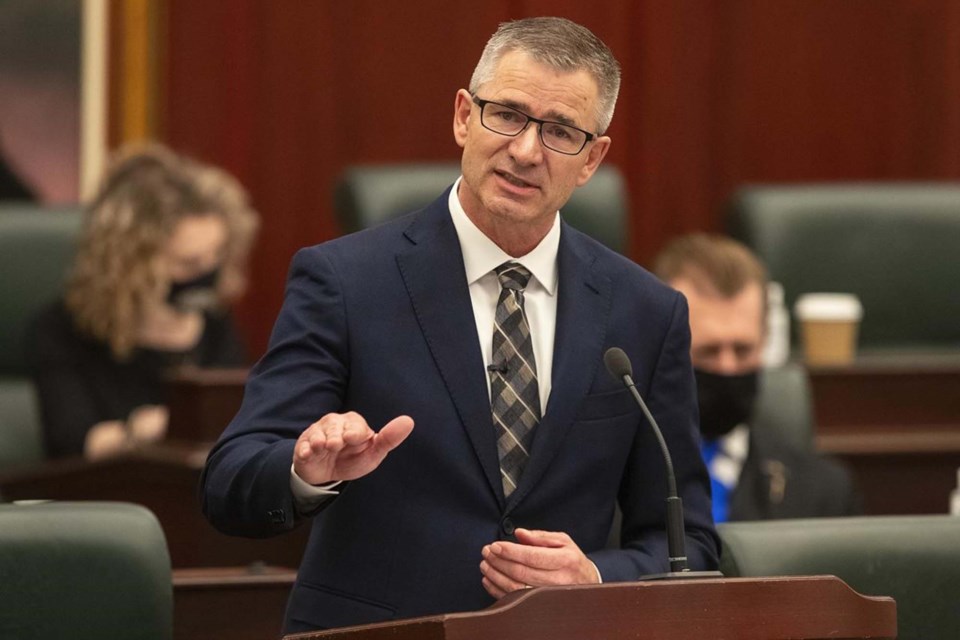The Alberta government is predicting a lower deficit than originally forecasted for the end of the fiscal year as oil prices and royalties are rebounding more quickly than predicted during budget.
On Tuesday morning Alberta Finance Minister Travis Toews gave the fiscal update for the first quarter and said the forecast is now expected to hit $7.8 billion, a whopping $10.5 billion lower than projected in February’s budget.
The quarterly report, which takes into account the provincial finances from April to the end of June, shows revenue forecasts at $9.8 billion, which is $6.9 billion higher than Budget 2021.
The price of West Texas Intermediate oil sat at an average of $65 for the three-month period, which is an increase from the $46 predicted in the budget.
Although high oil prices are good news for the province, Alberta still faces challenges from being reliant on a volatile commodity.
"The rate of change in the economic outlook and government revenue once again displays the volatility faced by Alberta, the need for economic diversification, and for caution in fiscal planning,” the fiscal report said.
While the report said the province needs to diversify the economy, Alberta is still struggling to tackle the COVID-19 pandemic.
"The rapid spread of the Delta variant could dampen the global recovery and lead to a sharper pullback in commodity prices and demand, including oil,” the report read.
"A stronger-than-expected increase in OPEC+ or U.S. production could also weigh on oil prices. At the same time, a resurgence in COVID-19 infections in Alberta could also derail the recovery in the second half of the year.”
As the pandemic continues, it will impact the provincial fiscal situation, and if COVID-19 infections continue to increase, this could dampen the fiscal projections for the rest of the year.
COVID-19 is costing Alberta $5.4 billion dollars, which is $1.5 billion higher than projected in Budget 2021. Most of the money is for the cost of vaccines, testing, job programs, and overall operating expenses.
Toews said the current surge in cases will have a “bumpy” effect on the bottom line, but noted the economy has been resilient through the pandemic.
"I think we've taken a very cautious, prudent perspective in terms of revenue projections and it's one that again includes the expectation that we'll continue to battle the pandemic for weeks and even months ahead," Toews said.
Industries hit hardest by health restrictions, such as food, recreation, and the hotel industry, are not expected to fully recover until 2022.
Read more from StAlbertToday.ca



